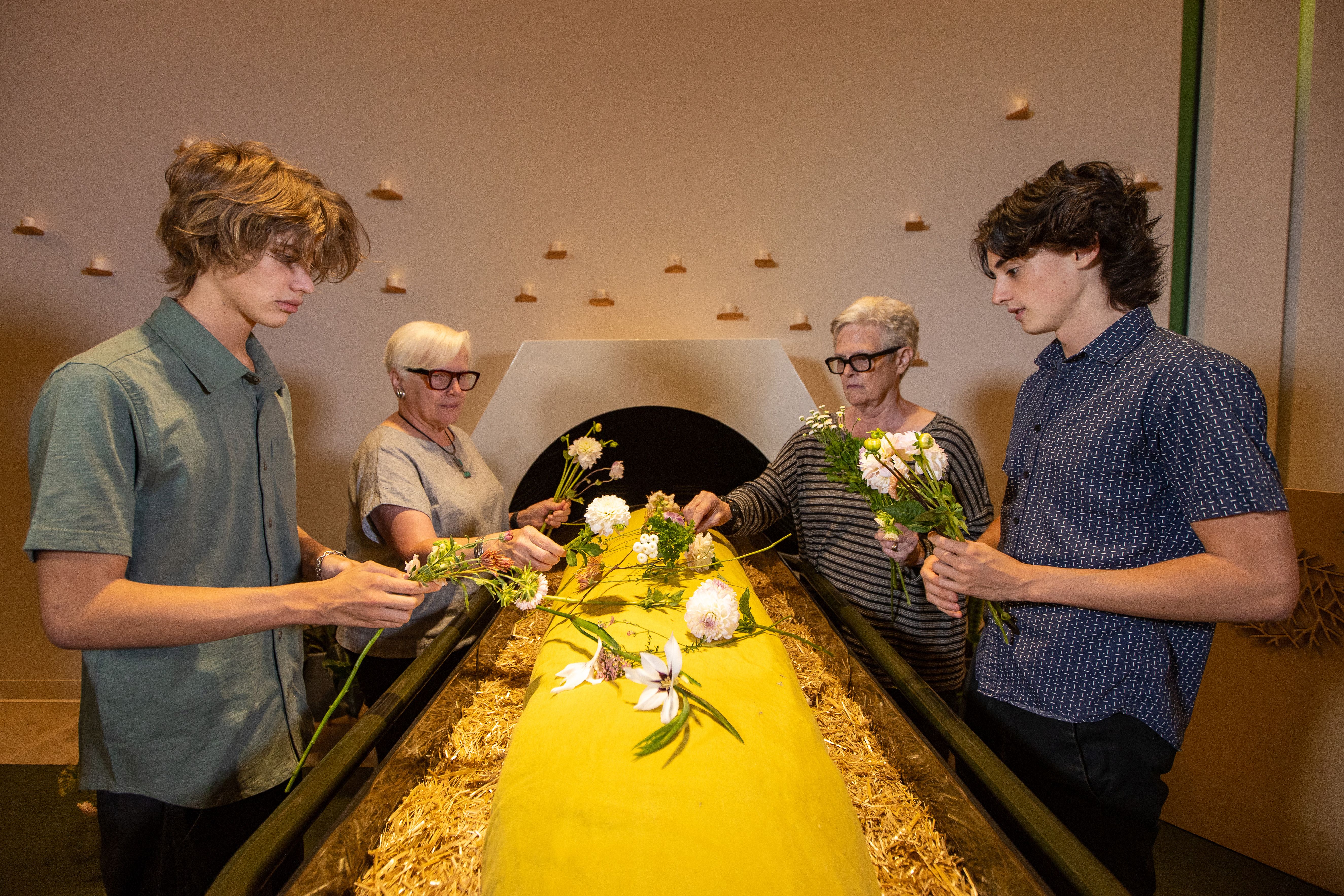Forget traditional burial or cremation — "human composting" is the hot new thing in death care.
Why it matters: Deciding what should be done with your remains is a deeply personal matter, and new options don't arise all that often.
What's happening: California recently became the fifth U.S. state to legalize human composting, through which a person's remains are turned into usable soil.
- It's also been approved in Colorado, Oregon, Vermont and Washington; New York could be next.
- Recompose, a Seattle-based funeral home, is at the forefront of the movement.
How it works: Upon a client's death, Recompose organizes "laying-in ceremonies" similar to traditional funerals.
- The body is then placed in a specially designed vessel and surrounded with natural materials, such as wood chips and alfalfa.
- "By controlling the ratio of carbon, nitrogen, oxygen and moisture, human composting creates the perfect environment for microbes and beneficial bacteria to thrive," says Recompose. "These microbes are assisted by mechanical steps to help complete the transformation into soil."
- The process takes around a month and results in about a cubic yard of soil, including the composted plant matter. Non-organic matter (such as dental implants) are sorted out, and the soil is tested.
The deceased's loved ones can then take the entire result, or a smaller portion in an urn-like container, for use in a backyard garden or forest.
- Recompose donates unwanted soil to local forest conservation efforts.
What they're saying: "That soil is, on the one hand, very sacred and special to the people still living," says Recompose founder and CEO Katrina Spade.
- "But on the other hand, it's just soil. And so to be able to return to the Earth in a meaningful way, to the forest, through our conservation partners, I think that's my favorite option," she says.

By the numbers: Recompose costs $7,000, including pickup, composting and soil donation. That's generally more expensive than direct cremation, but cheaper than burial.
- Recompose has composted over 200 people so far, says Spade. Around 1,200 more have signed up to make monthly payments toward the final cost.
Recompose client Nina Schoen was attracted by the "slow transition of transforming into something else, which means that a death doesn't happen overnight," she says.
- "And to me that helps break down the barrier we have between here one minute, gone the next — this invisibleness of death."
Another draw: Environmental concerns. Human composting saves about 1.2 metric tons of carbon compared to traditional burial or cremation, Spade says.
- "Hundreds of folks who are under the age of 49 ... are signing up with us. And I believe the common thread is the climate crisis and the state of the environment generally."
Backstory: Human composting has its roots in agriculture, says Jennifer DeBruyn, professor of biosystems engineering and soil science at the University of Tennessee.
- For farmers in places with little topsoil, "burying dead animals is not best practice — it's not possible," DeBruyn says. "And so we tend to recommend to most of our landowners to compost their animals."
The bottom line: Human composting might benefit from a bit of rebranding — but its proponents are glad to have found an option that better suits their attitudes toward death.
- "I love this idea that it's like my time has come, and now it's time for something else," says Schoen.







